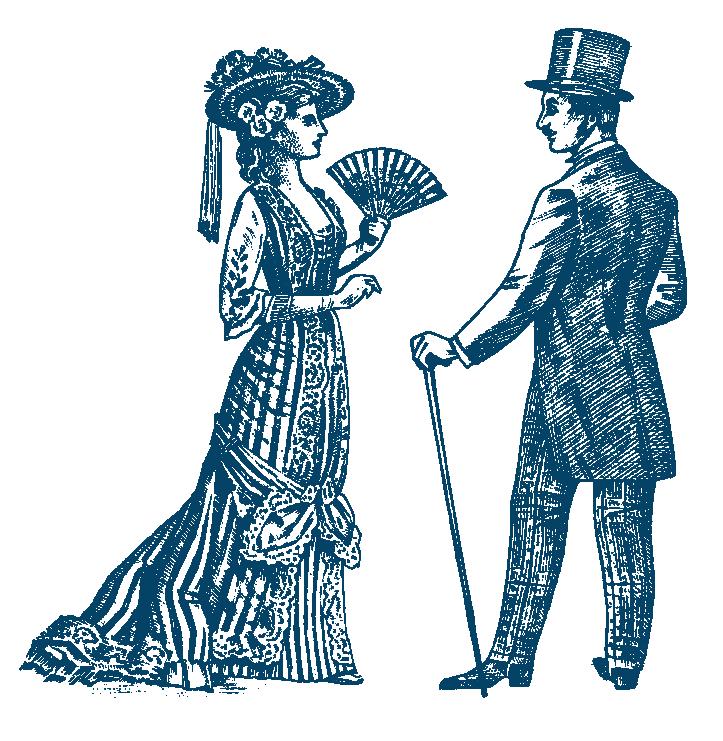
3 minute read
Notes from the Director
Notes From Director Steve Wilson
It seems difficult to fully comprehend the changes we have all endured over the last 14 months. Outrageous fortune has truly outdone herself! Those of us privileged to call ourselves theatre artists have been particularly hard hit since our passion lies in gathering people into confined spaces to provide an authentic, transformative and singular experience. While we honor the good work done online, we are delighted to welcome you all back to the theatre!!
I will not bore you with my personal journey, but suffice it to say, when Bryce Alexander called me to direct this production of An Ideal Husband, it was a pivotal moment in my life. I had known the play on the periphery of my experience, but, like many, my impressions of Oscar Wilde were dominated by his extraordinary comic play The Importance of Being Earnest as well as the great tragedy of his real-life story. While Earnest is certainly a great play, I believe An Ideal Husband to be Wilde’s masterpiece. It is constructed perfectly, flowing seamlessly between humor and anguish. It offers a cleaner plot than the moving and dark A Woman of No Importance while combining the deft and brilliant comic wordplay recognizable in Earnest and Lady Windermere’s Fan with a staggering pathos that makes artist and audience dig deep to consider the universal reflections of the play. At times, Husband defies classification, since there are elements of comedy, melodrama, tragedy, political drama, and a morality tale simmering beneath the surface of Wilde’s genius with language and human observation.
An Ideal Husband combines a captivating plot with a plethora of three-dimensional characters and explores several thematic topics that seem designed to engage an audience in various ways. The theme of ambition as defined by the political machinations that manifest behind closed doors seems strangely relevant in a politically divided America of 2021. And while we experience the price of Robert’s dark secret, he will remind us of the necessity of this moral transgression in his ability to be ultimately successful. This seems out of keeping with the traditional stereotypical hero whose spotless reputation never really reflects the real ambiguities of life.

The themes of the hypocrisy of the upper class to uphold stringent moral codes while living quite different realities are railed against and showcased in the Wilde surrogate character of Lord Goring and his match in Mabel Chiltern. These characters are steeped in Wilde’s great investigation of artifice (think Cecily and Gwendolyn from Earnest). But for me the center of the play rests in the exploration of love and marriage (the play’s title should be a clue here). Wilde will showcase myriad opinions on these topics as seen through the eyes of multiple characters - from seasoned personalities like Lady Markby and Lord Caversham, to the young love of Mabel, the jaded view of Mrs. Cheveley, the aging bachelor in Goring, and of course the seemingly “ideal” love of the Chilterns. Like many couples who walk together through tragedy, the Chilterns’ relationship is strengthened and empowered in unforeseen ways by this transformative experience.
The play has four exceptional and complex leading players whose dualities make for particularly realistic renderings. Our playbill includes two of the most interesting female characters in modern drama with one serving as our antagonist - unusual for the time and a testament to Wilde’s expansive opinions on gender. We have the profoundly philosophic “dandy” character (traditionally only interested in pleasure and appearance) who facilitates catharsis at several climactic moments. We have the honorable politician who carries the transgressions of his youth while retaining his solid moral compass. And the upstanding and intellectual wife, highly idealistic with a penchant for public service but a naïve perspective on real connection. They play out a grand narrative that at times feels more like Shakespeare or Ibsen than a comedy of manners.
For me, An Ideal Husband is an IDEAL play! I hope you find it so. I believe it has something for everyone. You can indulge in the twists and turns of the wonderful plot, empathize with the humanity of some exceptionally well-drawn characters, consider the great themes of love and marriage, or just relish the wit and witticism of one of the great masters of the English language – the incomparable Oscar Wilde.
Enjoy.
Steve Wilson, Director








